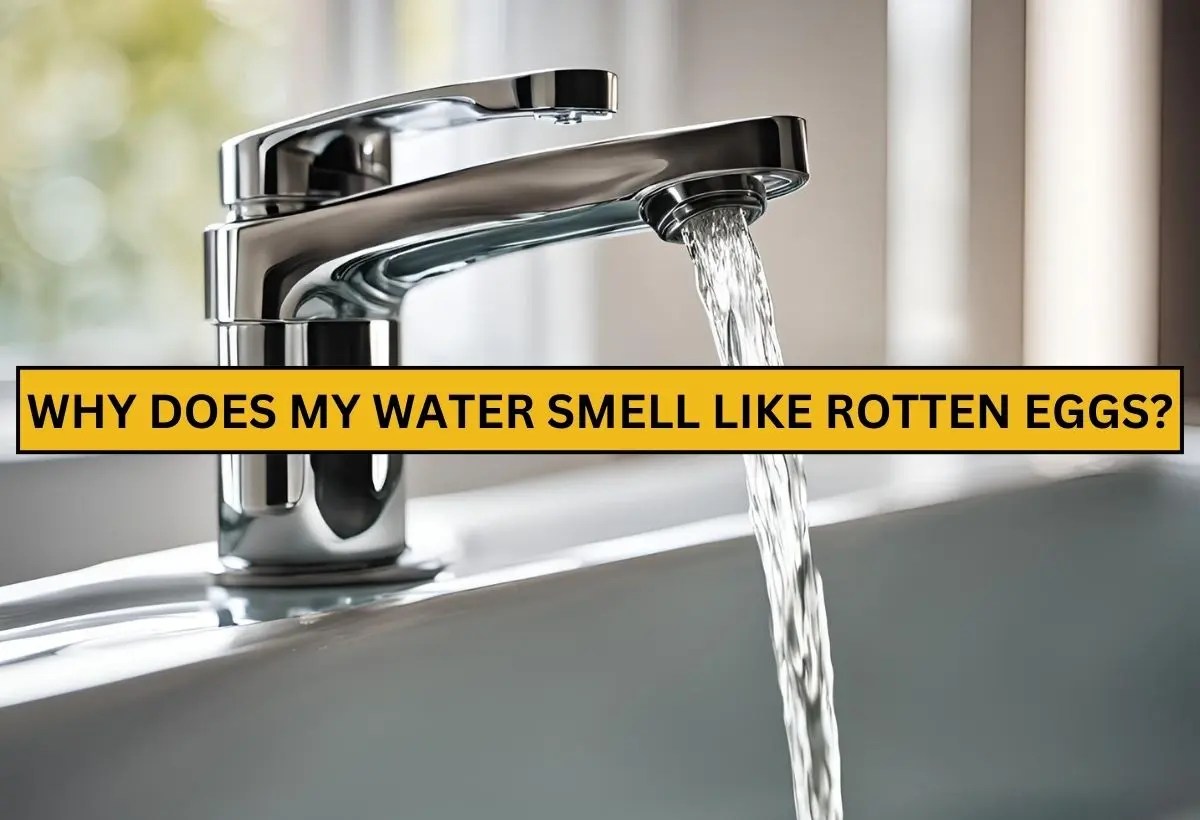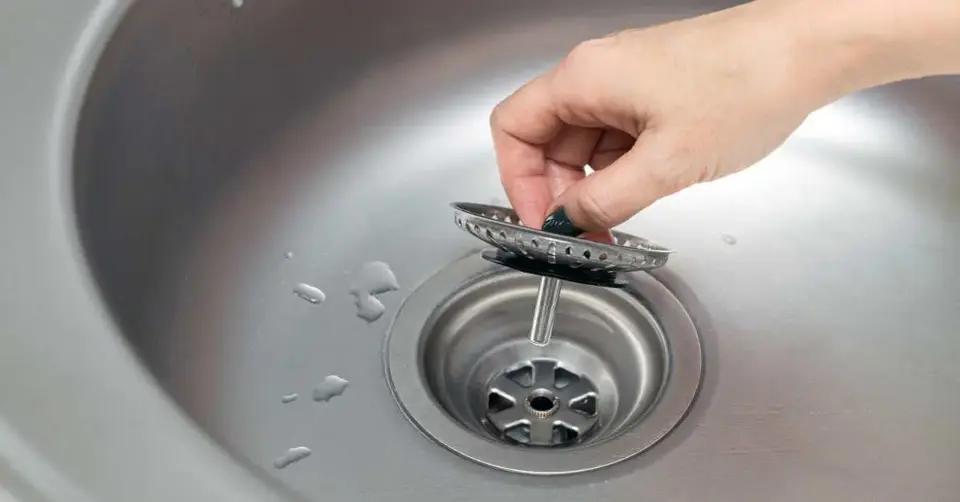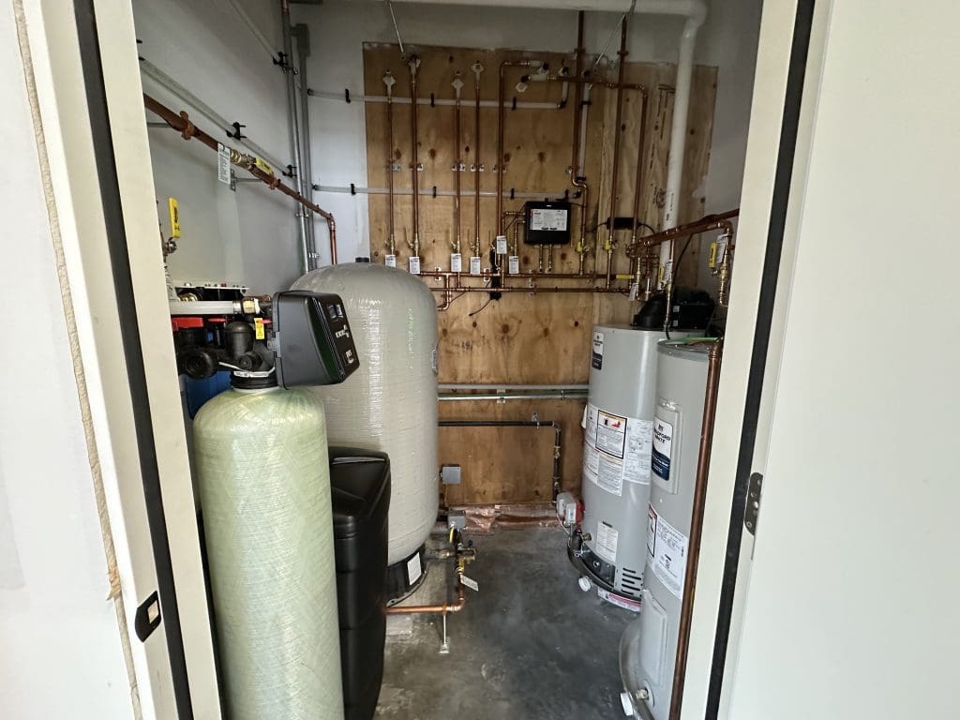It can be very disturbing to turn on your tap and smell rotten eggs. This bad smell can sometimes come from harmless reasons. However, it can also mean there are problems with your water source. While it may not always affect your health, knowing why this smell happens and what it might mean is important. This will help make sure that your home’s water is safe and nice to use.
The main reason for the rotten egg smell is hydrogen sulfide gas. This gas comes from sulfur bacteria. These tiny organisms live in places with little oxygen, like your plumbing system, well, or water heater. They eat natural sulfur and organic matter found in water. In doing so, they release hydrogen sulfide as a result.
Luckily, sulfur bacteria are usually not harmful to people. However, the hydrogen sulfide gas they create can mean there are other water quality issues. Besides the unpleasant smell, hydrogen sulfide can wear away metal pipes over time. This can lead to leaks and make your water even more contaminated.
The Role of Hydrogen Sulfide Gas
Hydrogen sulfide gas has a strong sulfur smell that you can smell easily, even in small amounts. You can notice this smell more in hot water than in cold water. This is because hot water releases the gas more.
The smell is often the first thing you notice, but hydrogen sulfide can also make your drinking water taste bad. This can make it less enjoyable for you to drink enough water.
At high levels, hydrogen sulfide gas can be harmful to your health. While it doesn’t happen often, being around high amounts for a long time can lead to health problems. These can range from mild headaches and nausea to serious breathing issues.
How Different Sources Contribute to the Odor
The source of hydrogen sulfide can help you understand how serious the problem is. It can also guide you to the right solutions. Sometimes, the issue comes from your home’s plumbing system. Bacteria can grow in stagnant water pipes or in a water softener that hasn’t been taken care of. This leads to the release of hydrogen sulfide gas, which makes your water smell bad.
A broken water heater can also allow sulfur bacteria to grow. The warm space inside the tank is good for these bacteria. Adding a magnesium anode rod, which helps prevent rust, can make the conditions even better for them.
Figuring out if the bad smell is from your plumbing system, water heater, or water source is the first step to fixing the issue and improving your water quality.
Pinpointing the Common Sources of the Smell
Determining where the rotten egg smell is coming from may take some investigation. Begin by paying attention to when and where the smell is strongest. If you mostly notice it in your hot water, your water heater might be the problem.
If the smell is in both hot and cold water, the issue could be your well, plumbing system, or the water source itself. It is a good idea to contact a professional for testing. This can help you find the exact cause of the smell.
Bacteria and the Water Heater Connection
The inside of your water heater can sometimes be a place for bacteria to grow. The warm and often still water in the tank can let sulfur bacteria multiply. This produces hydrogen sulfide as a waste product.
Also, many water heaters have a magnesium anode rod. This part helps prevent the tank from rusting, but it can react with sulfur in the water. This reaction can increase the amount of hydrogen sulfide gas produced.
If this happens, changing the magnesium anode rod to one made from a different material might help. It is a good idea to talk to a professional to make sure it is installed correctly and to see if this solution works for your specific need.
Well Water Contamination and Its Impacts
If you use well water, a rotten egg smell could mean something is wrong. This is different from city water, which gets a lot of treatment. Well water depends on nature to filter itself through the earth.
As the water passes through the ground into your well, it can collect natural minerals and also some harmful substances. One of these can be bacteria that cause sulfur, which can harm your well water quality.
To keep your water safe and find any problems, it’s really important to test your well water regularly. If there is ever a problem, fixing it quickly can help protect your well and keep your family healthy.
Municipal Water Supply Issues in Dutchess County, NY
Even if you get water from the city supply, like many people in Dutchess County, NY, you might still notice a rotten egg smell. This smell is less common than in well water. City water is treated to remove harmful substances, but sometimes problems can happen at water treatment plants or in the pipes.
These problems could be due to changes in how water is treated or temporary corrosion in the pipes. This might cause hydrogen sulfide to appear in the city water.
If you notice a continual rotten egg smell in your tap water, it is important to tell your local water department or city officials. They can look into any issues with the water supply and help residents with the right advice.
Health Implications: Is Smelly Water Safe?
A mild rotten egg smell in your water does not mean you need to panic right away, but it does show there may be some water quality issues that need attention. The presence of hydrogen sulfide gas, especially in high amounts, can cause health problems.
Drinking water with high levels of sulfur can lead to stomach issues like nausea, vomiting, and diarrhea. Breathing in this gas can bother your lungs, especially for people with existing breathing problems. If you notice a strong rotten egg smell that does not go away, the best thing to do is get your water tested by a professional.
When to Use Water and When to Avoid
Until you find and fix the cause of the rotten egg smell, it’s wise to be careful with your water use. Do not drink or cook with it. Even a small amount of hydrogen sulfide can make you feel uncomfortable and could be risky for your health.
Try letting your water run for a few minutes before using it for anything other than drinking. This may help clear out any trapped gas in the pipes, which can lower the smell.
If you feel sick or have headaches, or trouble breathing after using smelly water, get medical help right away. It’s important to check for any health issues that might relate to the water.
Identifying High-Risk Situations for Homeowners
Certain situations can make tap water smell like rotten eggs. If you own a home, knowing these factors can help you take steps to fix the problem.
Homes that use well water often face a higher risk. This is because they do not have a central water treatment system and could be contaminated naturally. To reduce this risk, regular maintenance and testing of the well are very important.
Also, times when water use is high, like during hot summer months when you use your irrigation system, can make the issue worse. The extra water demand can stir up sediment and bacteria in pipes and wells, causing a stronger odor.
Diagnosing the Source of the Smell
Finding out where the rotten egg smell in your water is coming from is important. This helps you find the best solution. You can start with an at-home test to get a basic idea of the issue. However, it’s better to have a professional water test done.
A professional test can identify the types and levels of harmful substances in your water. This way, you can decide on the right treatment options. Understanding if the bad smell is from your water heater, plumbing system, or the water source will help you choose the best and most lasting fix.
Steps for Homeowners to Take
If you smell a rotten egg odor in your water, you can take some quick actions:
Find where it comes from: Check if the smell is stronger in hot water or cold water. This can help you find the issue.
Ventilate your space: If the smell is really strong, open your windows and doors. This will help the air flow and reduce the odor.
Get help from a professional: Reach out to a plumber or a water treatment expert for help. They can look at your plumbing system, water heater, and well, if you have one, to see if there are any issues.
The next step could be to install a water filtration system. This system can help remove the rotten egg smell and improve the quality of your water.
A professional can help you choose the right water filtration system that suits your needs.
The Importance of Professional Water Testing
While some at-home tests can detect the presence of hydrogen sulfide, professional water testing offers a more comprehensive and reliable analysis. It provides valuable insights into your water quality, identifying specific contaminants and their levels.
Consulting a local water expert can equip you with detailed information about your water’s composition, potential health risks, and the best course of action for treatment. Here’s why professional testing is crucial:
| Benefit | Description |
| Accuracy: | Labs use advanced techniques to ensure precise readings, free from common errors. |
| Comprehensive Analysis: | They test for a wide range of contaminants beyond just hydrogen sulfide, providing a complete picture of your water quality. |
| Personalized Recommendations: | Experts interpret the results and advise on specific filtration solutions tailored to your water’s unique composition. |
Solutions for Rotten Egg Smell in Water
Getting rid of the rotten egg smell in your water starts with addressing the cause. Here are some practical ways to tackle the issue and enjoy fresh water again:
Water Heater Fixes
Flush the Tank: Over time, sediment and bacteria can build up in your water heater. Flushing the water heater tank clears these out and helps stop the smell from forming. It also improves the heater’s performance.
Replace the Anode Rod: The anode rod in your heater can react with bacteria, creating hydrogen sulfide gas. Swapping it out for an aluminum-zinc rod can solve the issue.
Regular Maintenance: Scheduling regular checkups and cleanings for your water heater keeps bacteria at bay and prevents recurring odor problems.
Well Water Treatments
Shock Chlorination: A chlorine treatment can kill bacteria in your well and clean out organic material that feeds the bacteria causing the smell. It’s a fast way to restore fresh water.
Install a Water Treatment System: Adding equipment like carbon filters, aerators, or chemical injectors can remove sulfur and other impurities, giving you water that’s clean and odor-free.
For Municipal Water Supplies
Use Point-of-Use Filters: Installing a small filter at affected faucets can eliminate smells and improve water quality right where you need it.
Contact Your Water Provider: Report the issue to your local water supplier. They can inspect for contamination or aging pipes that may be causing the odor.
Preventative Measures to Avoid Smelly Water
Keeping your water fresh doesn’t take much effort if you stay on top of regular maintenance. Here’s how you can prevent odors from coming back:
Water Heater Maintenance: Flush your heater once a year to remove sediment and bacteria. Routine checkups can keep your system in good shape.
Well Water Testing: Test your well water yearly to catch potential problems like bacteria or sulfur compounds before they get worse.
Install Filtration Systems: A whole-house filter stops impurities from entering your water system, providing clean water at every tap in your home.
How Pro Elite Plumbing & Heating Can Help
Dealing with smelly water can be frustrating, but we’re here to make it simple. At Pro Elite Plumbing & Heating, we specialize in finding and fixing water quality problems.
Expert Diagnosis: Our experienced technicians will inspect your water system, identify the source of the smell, and recommend an effective solution that works for your home.
Water Heater Services: From flushing your tank to replacing worn parts like the anode rod, we’ll resolve water heater issues that cause unpleasant odors.
Well Water Treatment: If your well water is the problem, we offer advanced solutions like filtration and chlorination to eliminate bacteria and sulfur compounds.
24/7 Emergency Help: Plumbing issues don’t always happen at a convenient time. That’s why we’re available around the clock to handle any urgent water problems.
Say Goodbye to Smelly Water Today!
Don’t let the rotten egg smell ruin your home’s water. Contact Pro Elite Plumbing & Heating now for fast, reliable solutions. From expert diagnosis to long-lasting fixes, we’ll make sure your water is fresh and clean again. Call us today (845) 498-0976 or schedule online for a consultation!
Frequently Asked Questions
Can I shower in water that smells like rotten eggs?
Showering with smelly water is usually safe. The main health issues come from drinking it. However, being around the bad smell for a long time can irritate your skin and eyes. If your water heater is making the smell, think about getting it checked. This will help solve the problem.
How often should I test my well water in Dutchess County?
It is a good idea to test your well water every year. This helps you check the water quality. In Dutchess County, things like farm runoff and changes in the seasons can affect the well water. Testing regularly makes sure your water is safe to use.
Are there any health risks associated with long-term exposure?
Short-term exposure to low levels of sulfur bacteria is usually not harmful. However, being around high levels for a long time can lead to stomach problems. It is important to find the source of the sulfur smell and enhance water quality.
What are the first steps to take if my water starts smelling?
If your water smells like rotten eggs, the first step is to find out where the smell comes from, whether it’s hot or cold water. Next, you can try a simple fix by changing your water filter. If the bad smell is still there, it’s best to call a professional to get the right diagnosis and solution.
Is it necessary to call a professional for a slight sulfur smell?
A small sulfur smell may not look worrisome, but it’s better to be cautious. You should have a professional check it out. They can figure out what’s wrong and advise if you should clean your plumbing system or if you need a water test.






